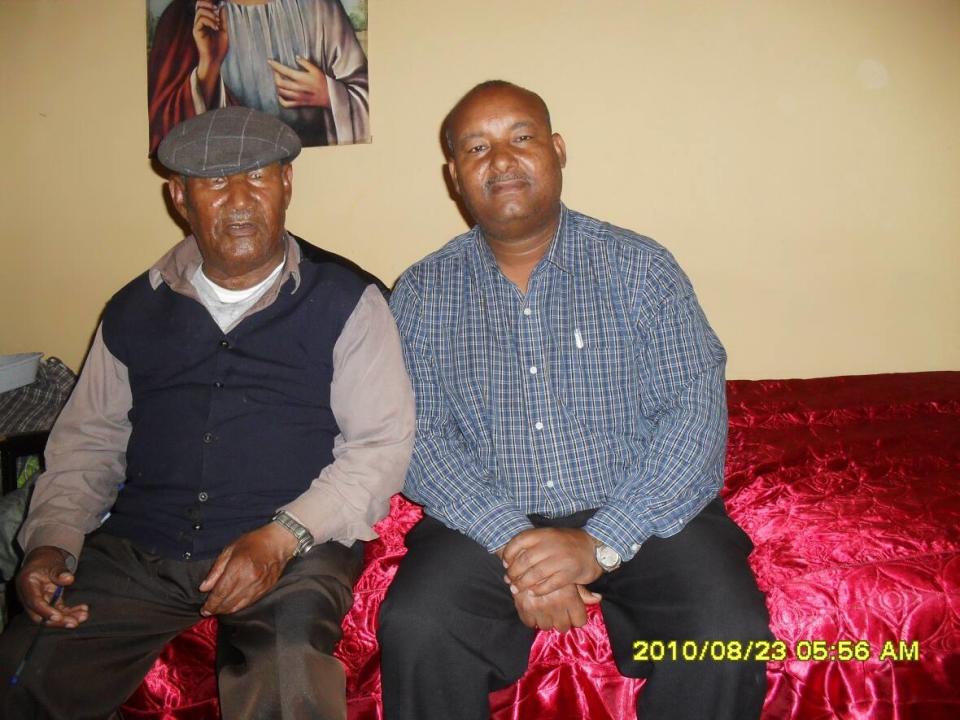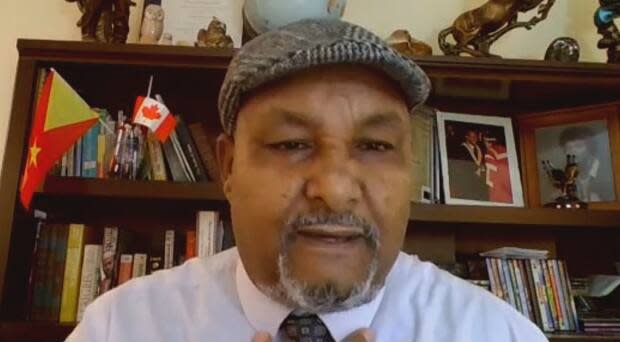Even after death of father a month ago, this man hasn't been able to speak to his mother in Tigray

Over the past 12 months, talking to his mother in the Tigray region of Ethiopia has been nearly impossible for Mulugeta Tedla.
Except for a two-month period where spotty conversations were sometimes possible, there hasn't been any opportunity for him to speak with her, or for his kids to speak with their grandmother.
He found out his dad died about a month ago and still hasn't been able to give condolences to or grieve over the phone with his mother.
This all because of an ever-growing military conflict in the country that's been going on for the last year.
The conflict has killed thousands of people and forced more than two million from their homes. Additionally, hundreds of thousands of people in Tigray now face famine conditions in the world's worst hunger crisis in a decade.
"There is no food, no medication, no cash flow, no commodities going. It's isolated for about 12 months," Tedla said.

"My dad used to take insulin and other medications, so there is no access to that. Unfortunately it's not only my dad, it's also other community members of my community in Windsor are being told that their relatives are passing because of lack of dialysis, lack of important medications."
A cousin travelled to another region of the country to make several phone calls to get word of his dad's passing to him in Windsor.
His mother, two sisters and brothers as well as his nieces and nephews still live in Ethiopia.
'Suffering is tremendous'
Just days after the federal government told Canadians in Ethiopia to leave the country amid the conflict, the Tigrayan community in Windsor, Ont., is calling on the government to do more.
One thing Tedla would like to see is the Canadian government make it easier for Tigrayans to seek asylum here.
They did all their best, but they've been blocked. — Mulugeta Tedla
He said people of Tigrayan descent in Ethiopia are being detained for no reason other than their backgrounds.
Ethiopia declared a state of emergency on Nov. 2, a year after the conflict erupted between the federal government and forces aligned with the Tigray People's Liberation Front (TPLF), the political party controlling the northern region of Tigray.
The declaration, which is valid for six months, allows suspects to be detained without trial for as long as the state of emergency lasts and allows house-to-house searches without a warrant.
"They are arresting like door-to-door by checking their names on the ID," he said.
"There are a group of people who are going door-to-door to arrest any Tigrayan who is living in the capital city … and these people are conducting their daily lives to raise families."

He also said he wants the Canadian government to strongly condemn the actions of Ethiopian Prime Minister Abiy Ahmed, including cutting off food supplies to the Tigrayan people.
"The suffering is tremendous. It's within Tigray and there is a big choke hold," he said.
"The people of Tigray could not feed on whatever they had because they were deliberately looted or destroyed or burning their food. And then eventually, now … they are under siege. So how the international world, they wanted to help. They sent food. They did all their best, but they've been blocked."

 Yahoo Finance
Yahoo Finance